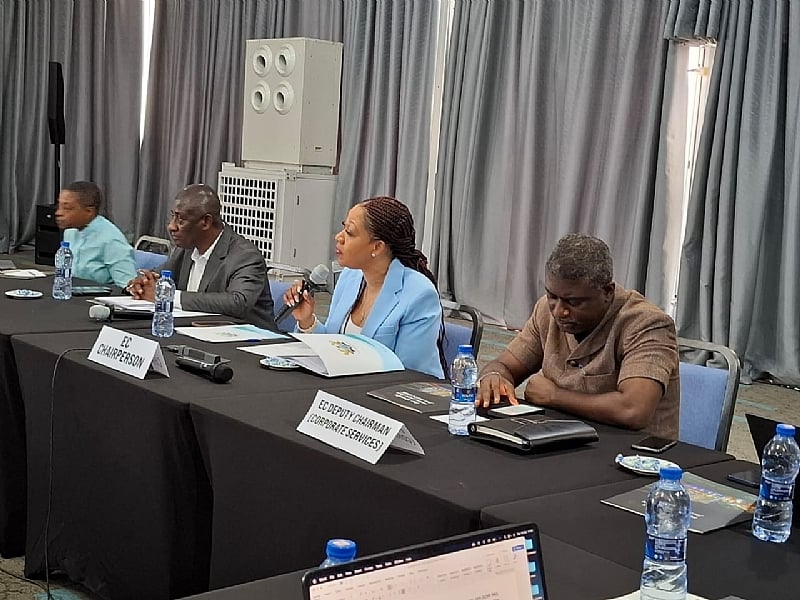The Electoral Commission (EC) of Ghana has recently announced that it will reconsider its suspension of ballot paper printing for the upcoming 2024 presidential election, prompted by the death of Madam Akua Donkor, the Ghana Freedom Party (GFP) flagbearer, on October 28, 2024. In compliance with Article 50 (4) of the 1992 Constitution, the Commission has provided the GFP with ten days to select a replacement candidate. This decision has raised concerns about the timeline and logistics of the electoral preparations as the EC balances the need for fairness with adherence to constitutional requirements. During a media briefing, Dr. Bossman Asare, Deputy Chairman for Corporate Services, assured the public that the Commission would be revisiting the situation the following week, signaling a proactive approach to addressing the challenges arising from this unexpected event.
Dr. Asare’s comments came after a tour of several ballot printing facilities in Accra, aimed at fostering transparency in the election process. The EC is actively printing parliamentary ballots while the presidential ballot printing is on hold. The tour included visits to key printing houses such as Buck Press, Innolink, and Acts Commercials Limited, serving various regions throughout the country. This initiative to invite journalists to observe the ballot printing process reflects the Commission’s commitment to transparency and public trust in the electoral system. Mr. Benjamin Bano-Bioh, Director of Electoral Services, accompanied Dr. Asare on this tour, emphasizing the importance of open communication surrounding the election preparations.
A significant aspect of the EC’s message is the assurance that no excess ballots are being printed. Dr. Asare categorically denied allegations that the Commission is preparing more ballots than necessary, labeling such claims as baseless. He underscored the importance of transparency in the process, stating that actions taken by the EC occur with the knowledge and input of political parties involved. Representatives from various political entities, including the GFP and independent candidates, were present during the printing process, highlighting the collaborative nature of the operation. The Commission has made it clear that every step of the ballot production is accounted for and rigorously monitored by the respective parties.
Bano-Bioh further elucidated the local capacity for ballot production in Ghana, indicating that the EC stands out among its peers in the sub-region for managing this process domestically. This localization emphasizes the strength and capability of the Commission in conducting elections without relying on external resources. In his remarks, he asserted that the electoral body maintains a steadfast commitment to executing a free, fair, and transparent election—essential qualities in promoting democratic principles in the country. By allowing political party agents to observe the printing process, the EC demonstrates its dedication to accountability and integrity in the electoral management process.
To further bolster public confidence, the EC has detailed its procedural safeguards, allowing party agents access to critical records throughout the printing process. These measures include providing agents with copies of serial number ranges and quantities being printed for each constituency. At the completion of printing, party representatives also receive detailed reports, ensuring all stakeholders are informed of the ballot status. The Commission’s emphasis on collaborative efforts underscores its view that successful electoral processes rely on a shared commitment among all political participants, thereby enhancing the legitimacy of the outcomes.
Finally, Dr. Francis Nyanin, Executive Director of Buck Press, emphasized the urgency and seriousness with which printing companies are addressing the deadlines for ballot production. His company’s dedication to meeting the needs of the EC underscores the collective effort required to ensure a smooth election process. As the nation prepares for the presidential election amid this transitional period, the EC’s actions in reviewing the suspension of ballot printing reflect a proactive stance in upholding democratic norms and facilitating a process that is inclusive and representative of the will of the people. The coming week will be critical as the Commission seeks to navigate the electoral landscape following unfortunate events affecting candidate representation, while continually striving for transparency and efficiency in their operations.


